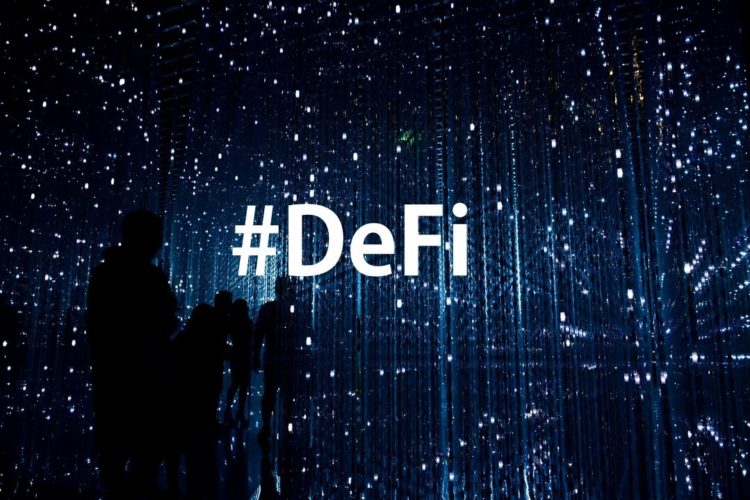Decentralized finance (DeFi) is quickly gaining popularity among cryptocurrency users, thanks to the huge range of new use cases these platforms enable.
But despite the DeFi industry growing by more than tenfold in the last year alone, the vast majority of cryptocurrency users still have not interacted with DeFi apps, while those outside of the cryptocurrency industry are likely unaware of the benefits of these tools. But with the advent of a new wave of DeFi platforms aiming to make these tools more accessible, more manageable, and less risky, mass DeFi adoption might be closer than we think. Here, we take at three new projects that might help achieve just that.
Clover
Clover is a Bithumb-backed initiative that has set out to produce a platform for easily building and launching decentralized applications on Polkadot.
It provides the tools and infrastructure developers can use to launch highly scalable, powerful DeFi apps at a very low cost, thanks to its modular tools and smart contracts. As a platform governed by the Clover (CLV) token holders, users will be able to direct the further development of the platform and take control over which modules and features are added next — earning rewards for doing so.
Some of the basic protocols that will be made available to developers include swap, wrapper, vault, lending, and stablecoin protocols — allowing developers to easily bake in advanced DeFi functionality to their dApps and focus their efforts on exploring more innovative use-cases.
These applications will also benefit from easy interoperability, thanks to Polkadot’s unique sharded chain technology, which sees multiple distinct blockchains connected together via the Polkadot Relay Chain.
Clover is committed to providing easy-to-use blockchain infrastructure and creating a one-stop EVM compatible framework for Substrate-based applications. https://t.co/zrhPEWLlG6
— Clover (@clover_finance) January 28, 2021
As an all-in-one open DeFi platform, Clover provides an operating system developers can use to easily launch their own Substrate-powered blockchain applications and makes it easy for pre-existing apps on Ethereum to easily launch on Polkadot thanks to its EVM execution module.
The platform is currently scheduled to go live in early 2021, or as soon as Polkadot parachains are made available.
DAO Maker
While many blockchain platforms are looking to disrupt what DeFi applications are capable of and improve their utility, DAO Maker is looking to do something different.
Instead, DAO Maker is looking to make DeFi both more accessible and safer to use, and will be introducing a range of products that make investing in promising crypto startups and DeFi trailblazers more attractive to retail investors.The Venture Bond is one of these flagship products.
Rather than requiring that investors simply hand over their funds to nascent projects with the hopes that they will achieve their development goals and achieve a positive return on investment (ROI), Venture Bond instead offers a completely risk-free investment medium by allowing startups to easily issue bonds investors.
Introduction to the Venture Bond
One product vector of the DAO Maker platform is to enable equity and token issuances to fundraise through a number of risk-limiting ways. Newest addition to the frameworks is type of bond that can make venture opportunities almost risk-free.
1/4 pic.twitter.com/HuEVKtLb11
— DAO Maker (@TheDaoMaker) November 16, 2020
The funds collected from selling bonds are then used to generate interest via insured and overcollateralized lending platforms and is distributed to the startup to fund its development. In return, investors either receive equity or tokens in the projects they support, and will receive their principal investment back when the bond matures.
On top of this, DAO Maker is also looking to make it easier for the supporters of a project to acquire a greater stake in through its Social Mining and dTeams initiatives, which are already used by a large roster of tokenized startups. It allows companies to accelerate their development, marketing, and other efforts by tapping into the skillsets of their staked community, who earn tokens for their contributions.
Terra
Last, but not least, is Terra — a blockchain protocol that is designed to provide a programmable money system developers can use to build novel DeFi applications and tools.
Terra is built on the Cosmos blockchain, which uses a novel Tendermint-based consensus protocol to keep the network secure while maximizing scalability and effiency.
Although the platform is most commonly known for its range of price stable assets — like USD and KRW stablecoins. It is also increasingly being recognized for its DeFi capabilities and a number of DeFi projects have started appearing on the platform.
These include Mirror, a Terra-based application that allows users to easily create synthetic assets known as Mirrored Assets (or mAssets). These can mimic the price behavior of real-world assets, such as stocks, indices, and commodities, and can be traded on Terraswap — a decentralized exchange used for trading Terra and CW20 tokens (like mAssets).

Image credits: Mirror
The company behind Mirror Protocol, Terraform Labs, recently raised $25 million in a funding round that included big names like Galaxy Digital, Coinbase Ventures, and Pantera Capital.
“Terra has already made a successful payment case for more than 2 million users in the Korean market, and is also rapidly growing in the DeFi space,” said Simon Kim, CEO of South Korean crypto fund #Hashed, in a recent press release.
With this funding, Terra may be set to position itself as a front-runner in the DeFi race, helping to make DeFi more powerful and accessible — particularly in Asian markets, where it already has a strong presence.
Credit: Source link












































































































































